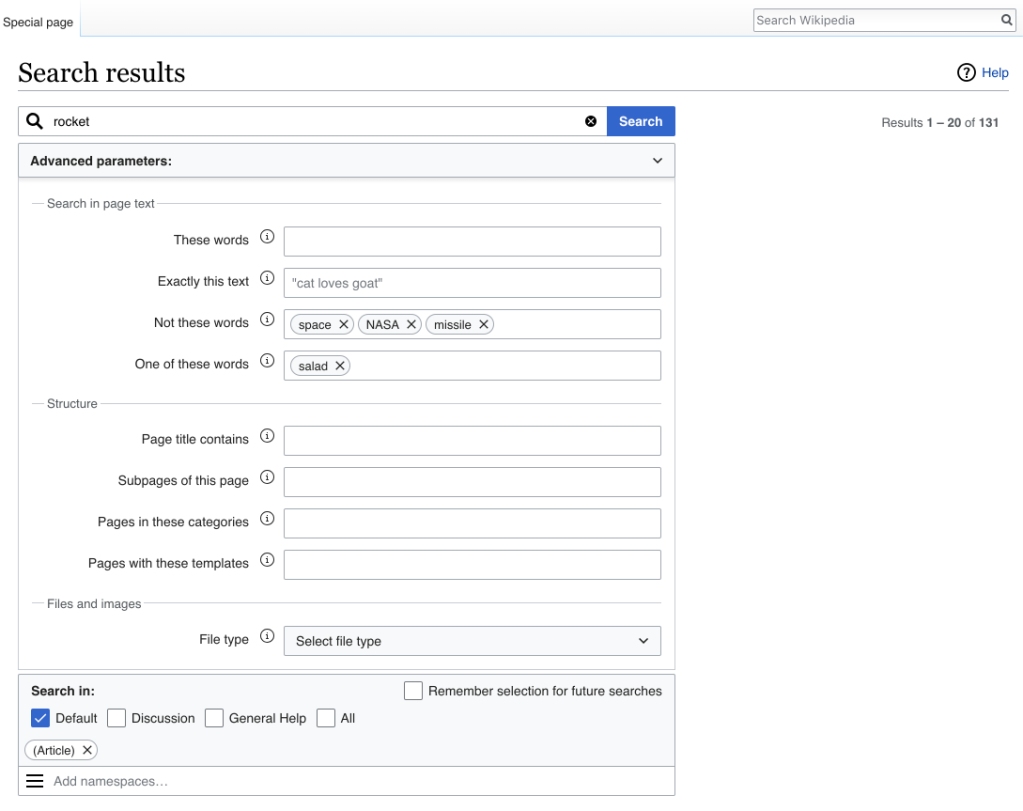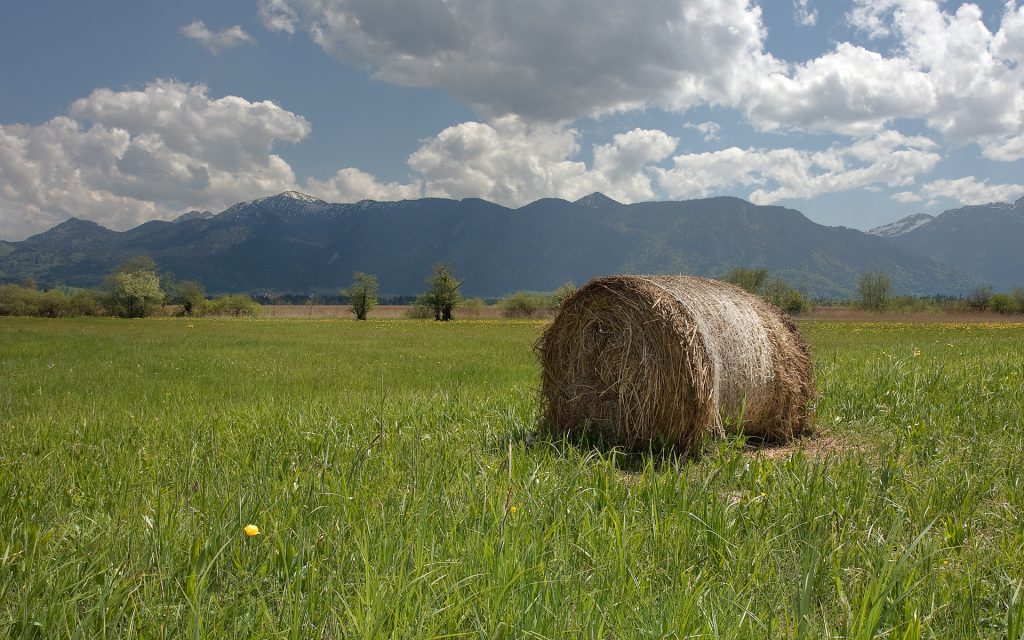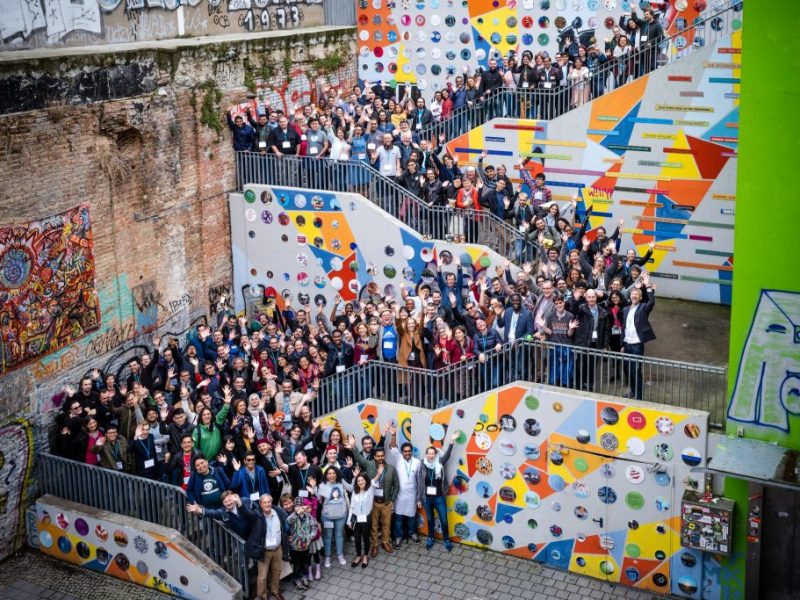With over five million articles, finding the exact Wikipedia article you want can sometimes feel like you’re searching for the proverbial needle in the haystack.
That’s why if you go and search the world’s largest encyclopedia, you will see a new interface that provides several common search terms. No longer will people looking for their favorite salad be faced with the dilemma of 50,000 search results for rocket.
More specifically, search pages now have an additional visual interface that provides several common search options. For instance, when you type space, Nasa, and missile into the field “Not this text” and salad into “One of these words”, you can narrow your search for rocket down to little more than 100 results. Other options are to search in page titles, for exact text, to look for pages in certain categories, with a particular template, and more.
All of this requires no search expertise whatsoever. Here’s the difference between new and old:


This isn’t the only way the the search page was improved—Wikimedia contributors may find the newly improved “namespace” search useful.
Namespaces divide all pages of a wiki into different areas with different purposes. To give you a few examples, there are:
- All kinds of different forums (organized in the project namespace et.al.),
- User pages (user namespace),
- Help pages (help and Wikipedia namespace),
- Pages for tools and other technical resources (e.g. the MediaWiki namespace),
- For each namespace, there is a corresponding talk namespace where discussions take place.
If you’re a Wikipedia reader, chances are that the only namespace you’ve seen is the article namespace—but most pages in a wiki aren’t articles. The English Wikipedia, for example, has more than 40 million non-article pages, as of December 2018. These are the places under the bonnet that keep the wikis running.
On the other hand, Wikipedia contributors spend a lot of their time in these namespaces. For example, an editor may want to check if a certain topic has been discussed anywhere on a talk page in their wiki. In the past, they could either search for the topic on all pages, or manually pick all talk namespaces. With the new interface, all talk namespaces can be selected at once with just one click. This, among other changes to the namespace selection, should support wiki contributors in finding their way around the wiki projects even better.
———
These changes, called Advanced Search, were developed by the Technical Wishes team at Wikimedia Germany (Deutschland), the independent Wikimedia chapter based in Berlin. They were supported by the Wikimedia Foundation’s Search Platform team, who works on how the general searching experience in the wikis can be improved.[1]
The idea for this feature was born in a workshop series with authors in Germany. From there, it was developed together with the different language communities by the help of prototypes and feedback rounds. After a beta phase with more than 40.000 users across all wikis, it became the new default interface for the search page for all Wikimedia wikis in November 2018.
Johanna Strodt, Project Manager Community Communication
Wikimedia Germany (Deutschland)
Footnote
1. They were formerly named, and began this project, as the Foundation’s Discovery team.




